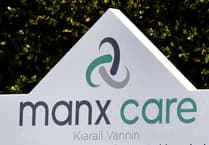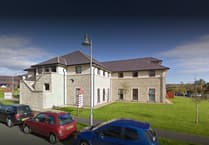A £25,000 donation from the Isle of Man Medical Research Charitable Trust has been used to provide Noble’s Hospital doctors with new training equipment.
The Mersey ATLS (Advanced Trauma Life Support) Group and Noble’s Hospital doctors held their biannual on-island course last month, using new mannequins donated by trust.
In previous years these sessions used to be taught using sheep chest and throat brought over from Liverpool, having been prepared by a specialist butcher there as this is not available in the island.
The course, which took place in the Medical Clinical Skills Centre attached to Keyll Darree on the Noble’s site, is run twice a year to train island doctors to be more proficient at managing patients with trauma.
The £25,000 donation by the charity meant that, rather than using animal cadavers to simulate trauma patients, doctors could work with new chest and airway (neck) mannequins, which are invaluable for teaching practical skills like inserting chest drains into injured patients.
The Advanced Trauma Life Support course is a worldwide programme taught over two days, for doctors (Foundation year 2 to Consultant) to learn how to manage badly injured patients in the first hours following injury to optimise outcomes.
In the UK, the course is run under the auspices of the Royal College of Surgeons (England), but Manx Care comes under the umbrella of the Mersey ATLS organisation and runs its courses with administrative and instructor support from that organisation.
A number of practical skills are covered, including insertion of a chest drain, emergency release of tension pneumothorax and emergency airway access at the front of the neck, for when patients have extensive trauma to the face and mouth and can’t breathe.
The Royal College of Surgeons recommends the use of mannequins (if available) instead of sheep carcasses, and thanks to the Isle of Man Medical Research Charitable Trust, the team is now in the fortunate position to have the most appropriate equipment available.
Dr Adrian Dashfield, consultant in anaesthesia and pain management and director of medical education, said: ‘We’re really grateful for the support shown by the charity in funding this new equipment.
‘It will make a big difference to the training we’re able to provide, with the mannequins allowing students to more easily repeat procedures as they learn; this will be of huge benefit to them when treating our patients.
‘Thank you to the IoM Medical Research Charitable Trust, and to Mersey ATLS for their continued support in working alongside us to deliver this training on-island.’




